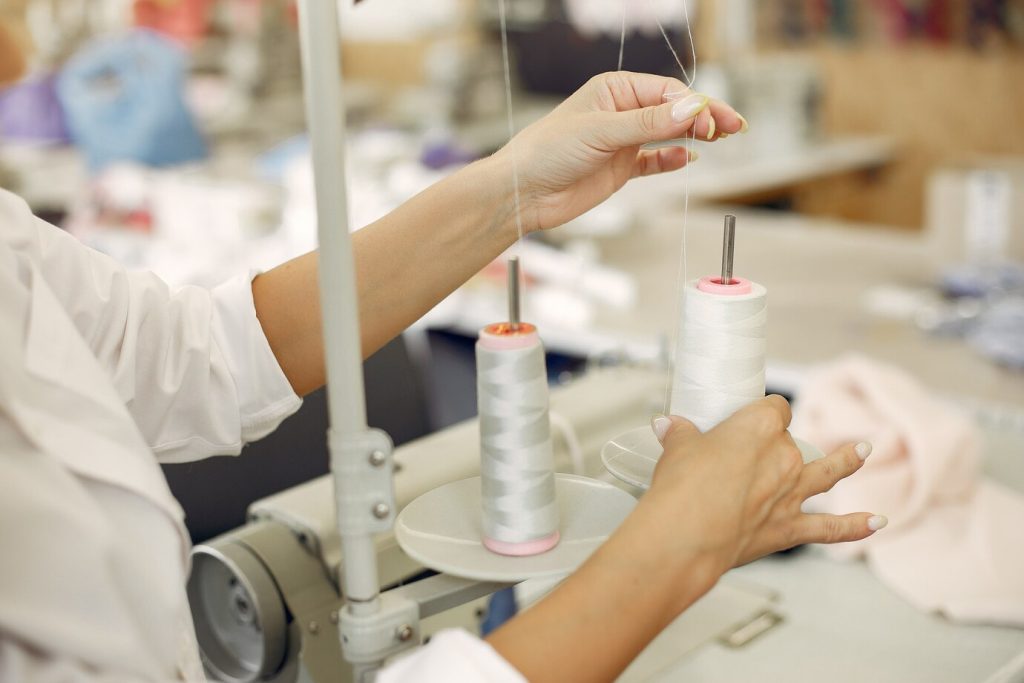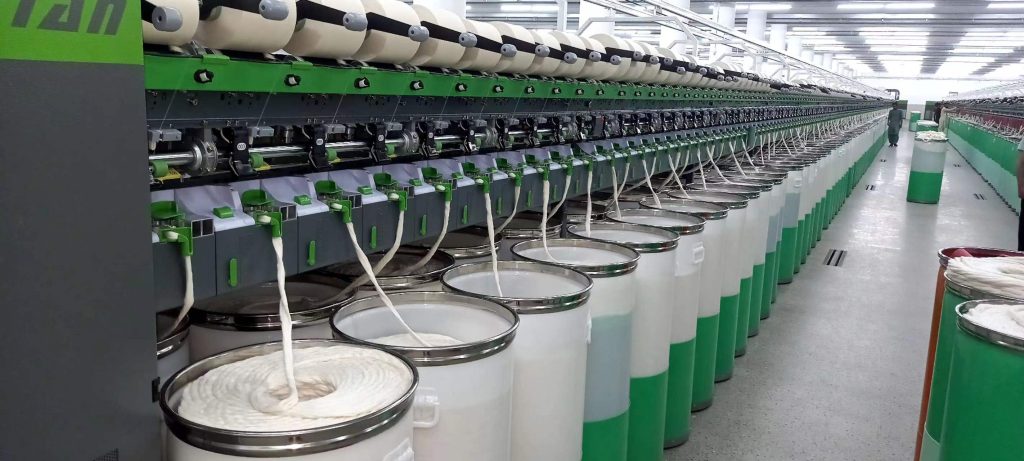The cotton textile industry has been a cornerstone of global manufacturing for centuries, driving economic growth and providing employment opportunities. Nonetheless, a multitude of obstacles confront it, endangering both its durability and effectiveness.
This article delves into the primary problems plaguing the cotton textile industry, with a focus on the spinning sector and the crucial role of sliver cans.

Environmental Impact
Water Consumption and Pollution
One of the most significant issues in the cotton textile industry is its substantial environmental footprint. Large volumes of water are needed for cotton production, which depletes the region’s water supplies. Moreover, the use of pesticides and fertilizers in cotton farming contributes to water pollution, adversely affecting aquatic ecosystems and human health.
Chemical Use and Waste
The dyeing and finishing processes in the textile industry involve numerous chemicals that are harmful to the environment. These processes generate large volumes of wastewater, which often contain toxic substances. If this effluent is not properly disposed of, it may contaminate the land and water, endangering the nearby populations and animals.
Economic Challenges
Fluctuating Raw Material Prices
The cotton textile industry is highly susceptible to fluctuations in raw material prices. Significant fluctuations in cotton prices can be caused by variables including insect infestations, climate change, and changes in the worldwide market. These fluctuations impact the profitability of textile manufacturers, making it difficult for them to maintain stable production costs.
Competition and Market Pressure
Global competition poses another major challenge. Many countries dominate the cotton textile market due to their lower production costs and economies of scale. This intense competition pressures other textile-producing nations to lower their prices, often at the expense of workers’ wages and working conditions.

Labor Issues
Poor Working Conditions
The cotton textile industry is notorious for its poor working conditions, especially in developing countries. Employees frequently deal with hazardous conditions, long hours, and little pay. The lack of proper labor regulations and enforcement exacerbates these issues, leading to exploitation and human rights violations.
Child Labor
Child labor remains a critical issue in the cotton textile industry. In many regions, children are employed in cotton fields and textile factories under harsh conditions. This practice not only deprives children of education and a normal childhood but also perpetuates the cycle of poverty.
Technological Challenges
Obsolete Machinery
Many cotton textile factories still rely on outdated machinery that hampers productivity and efficiency. Investing in and implementing more modern technology can go a long way in increasing production capacity and reducing operating costs. However, the high cost of upgrading equipment is a significant barrier for many manufacturers.
Sliver Can Issues in the Spinning Industry
In the spinning industry, sliver cans play a vital role in ensuring the smooth handling and storage of slivers—thin, untwisted strands of fiber. However, issues related to the quality and maintenance of sliver cans can significantly impact the efficiency of the spinning process.
Quality of Sliver Cans
The quality of sliver cans directly affects the consistency and quality of the spun yarn. Poor-quality cans can cause irregularities in the sliver, leading to defects in the final yarn. It is essential to utilize premium sliver cans in order to uphold product standards.
Maintenance and Durability
Sliver cans are subjected to continuous wear and tear in the spinning mills. To guarantee their longevity and avoid damage, regular maintenance is necessary. However, inadequate maintenance practices can lead to frequent breakdowns, disrupting the production process and increasing downtime.
If you want to know more about the daily maintenance of sliver can, you can read this article: Maintenance and Care of Sliver Cans in Spinning Plants
Social and Ethical Concerns
Ethical Sourcing and Transparency
The textile and cotton industry is facing growing changes in customer expectations regarding industry ethics. Issues such as forced labor, unethical sourcing, and lack of transparency in supply chains are under scrutiny. Companies need to adopt ethical sourcing practices and improve transparency to build consumer trust and meet regulatory requirements.
Sustainability Initiatives
Sustainability is becoming a critical focus for the cotton textile industry. Businesses are investing in environmentally friendly colors, water-saving technology, and organic cotton growing. However, the transition to sustainable practices involves significant costs and requires industry-wide cooperation.
Conclusion
The cotton textile industry faces a multitude of challenges that impact its environmental, economic, and social sustainability. All stakeholders, including governments, manufacturers, and consumers, must work together to address these concerns. By adopting sustainable practices, investing in modern technology, and improving labor conditions, the industry can work towards a more sustainable and ethical future.
Though they are sometimes disregarded, sliver cans play a vital function in the spinning industry by preserving the effectiveness and caliber of the production process. Ensuring high-quality and well-maintained sliver cans can help mitigate some of the technological challenges faced by the industry.

